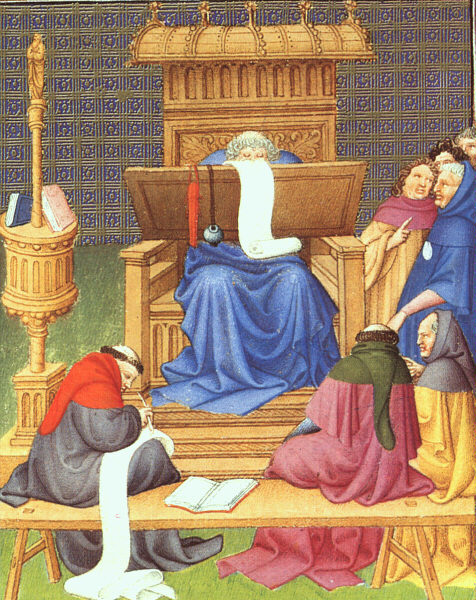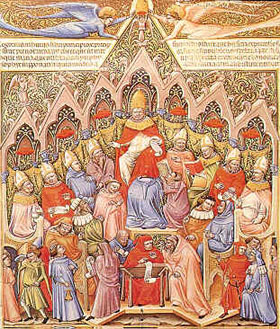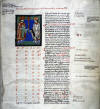Humanum genus duobus regitur, naturali uidelicet iure et moribus. Ius naturae est, quod in lege et euangelio continetur, quo quisque iubetur alii facere, quod sibi uult fieri, et prohibetur alii inferre, quod sibi nolit fieri. Unde Christus in euangelio: "Omnia quecunque uultis ut faciant uobis homines, et uos eadem facite illis. Haec est enim lex et prophetae."
Dictum before chapter 1, Distinctio 1: The Human Race is ruled by two things: namely, natural law and long standing custom (mos). Natural law is what is contained in the law and the Gospel. By it, each person is commanded to do to others what he wants done to himself and is prohibited from inflicting on others what he does not want done to himself.

Link to the Manuscripts in the Cologne Cathedral Chapter Library
Cologne, Dombibl. 127, fol. 9r
Cologne, Dombibl. 127, fol. 9r (Large)
Cologne, Dombibl. 127, fol. 9v
Cologne, Dombibl. 127, fol. 9v (Large)
Ratione lex constat
D.1 c.7: Ius naturale est commune omnium nationum, eo quod ubique instinctu naturae, non constitutione aliqua habetur (Natural law is common to all nations because it exists everywhere through natural instinct not because of any constitution).
D.4 dictum after c.3:
<Gratianus>.
Leges
instituuntur, cum promulgantur, firmantur, cum moribus utentium approbantur.
Sicut enim moribus
utentium in contrarium nonnullae leges hodie abrogatae sunt, ita moribus
utentium ipsae leges confirmantur. (Laws are instituted when they are
promulgated; they are confirmed when they have been approved by the
long standing custom of those who observe them.
Some laws have have been abrogated by the
long standing custom of those who have acted contrary to them, because laws
are confirmed by the long standing custom of those who observe them).
Ius Positivum = Lex humana
Laurentius Hispanus, Pro ratione voluntas
D.11-D.12: Laws abrogate or derogate custom
D.12 d.p.c.11: Custom can be confirmed by the universal church

